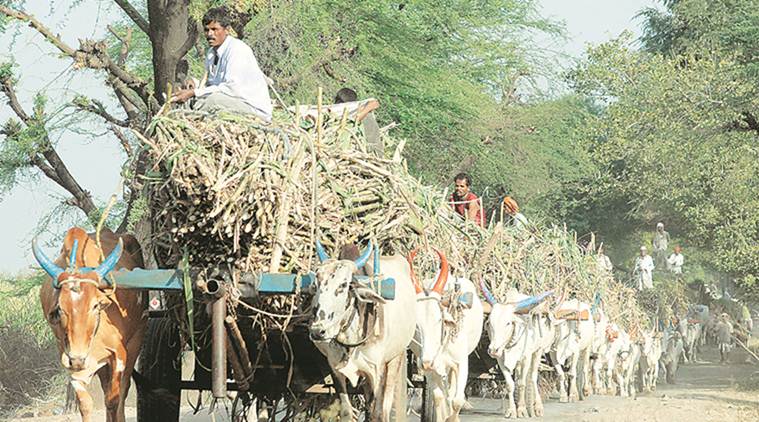
The decision of the central government to keep the fair and remunerative price (FRP) for cane unchanged for the 2019-20 season has come as a huge relief to the sugar industry, which was reeling under low prices and unusually high unsold inventory. This move has, however, failed to cut ice with farmers with former MP and farmers’ leader Raju Shetti calling it as the first act of betrayal for the farm sector.
The cabinet committee for economic affairs (CCE) led by Prime Minister Narendra Modi has taken two major decisions on the sugar sector. The first one talks of creation of a buffer stock of 40 lakh tonnes (lt) of sugar by the government at the mill level. An outlay of Rs 1,674 crore has been made for this stock which would help mills clear their unpaid dues to the farmers.
The second decision pertains to FRP and the CCE took a decision to keep it the same as that of 2018-19.
Oppn might turn it into poll issue
Unchanged FRP might help mills clear their balance sheets but for farmers this might mean a further reduction in their earnings. With the state going to polls in the next few months, unchanged FRP might become a political tool in the hands of the Opposition especially in the cane belt of Western Maharashtra. The sugar industry as of now has heaved a sigh of relief
Last year, the minimal FRP — the government-mandated price at which mills have to buy cane from buyers — was kept at Rs 275 per quintal with a base recovery rate of 10 per cent. This would be the first time since 2009-10 when the government has not increased the FRP.
The sugar industry has welcomed both the moves calling them timely and much needed. Bhairavnath B Thombare, president of the West Indian Sugar Mills Association, pointed out how throughout the last one year they have been lobbying with the government not to increase the FRP as it was “abnormally high”.
“We had met the chairman of the Commission of Agricultural Cost and Pricing (CACP) and pointed out how increasing the FRP would destabilise the sector completely,” he said.
Thombare, whose Natural Sugar and Allied Industries in Latur runs two private sugar mills in the state, also pointed out how the rise in FRP of cane was the highest among all crops. “This is a good move and will help all stakeholders,” he said.
The unchanged FRP has come as a huge relief for mills which are straddled with record unsold inventory and low capital. Most mils in Maharashtra have taken the unusual step of clearing the basic FRP for the last season in three installments and only 10 mills have paid insignificant amounts above the FRP. The next season is not to see much relief as the unsold inventory is going to weigh down on the sector even though Maharashtra’s production figures are expected to dip.
However, this certainly is not the sentiment among farmers who have pointed out increase in price of fertilizers and diesel and non-viability of the FRP to meet their cost of production. Shetti claimed prices of fertilizers have increased by Rs 100 in the last one year and by not increasing the FRP the government has not done justice to the cane growers.
The change in base recovery rate last year from 9.5 to 10 per cent had already meant a loss of around Rs 20 per quintal and by keeping it constant the government has dealt another blow to the farmers, Shetti said.
Thombare, on the other hand, claimed that last year’s FRP hike was more political than economical and by not hiking the FRP further the government has taken a bold and much needed decision.